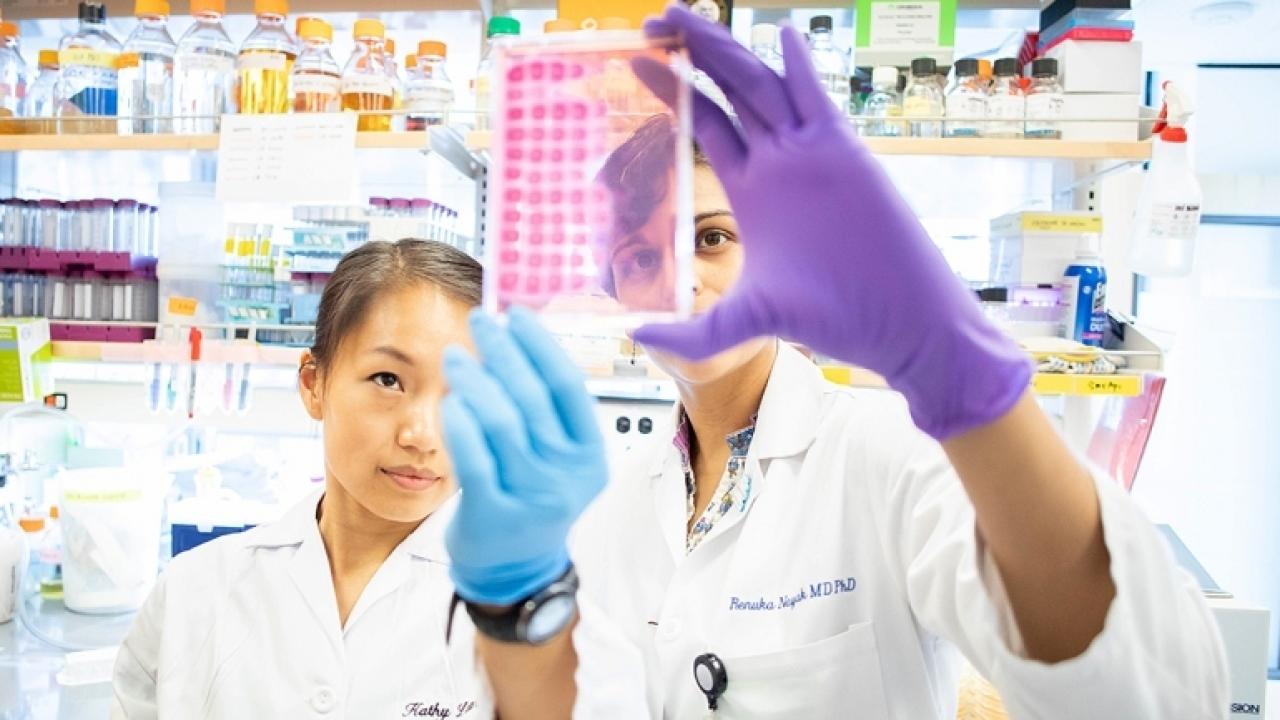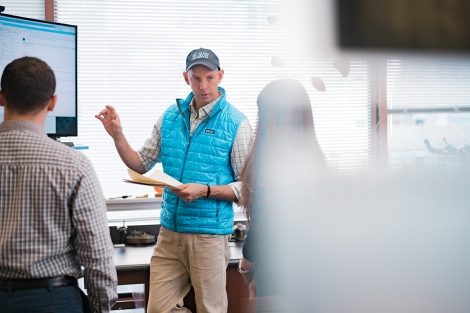
Kathy Lam (left) a postdoctoral fellow in the department of Microbiology & Immunology, works with Renuka Nayak, MD, PhD, assistant adjunct professor in Rheumatology. The new Bakar ImmunoX Initiative aims to break down the barriers that traditionally separate immunology research by disease area. Photo by Susan Merrell
UC San Francisco is launching the Bakar ImmunoX Initiative, an innovative research program that will promote collaborative, cutting-edge research and data sharing to catalyze discoveries about the central role of the immune system in human health and harness its power to treat a wide range of diseases.
Boosted by a significant new gift from the Gerson Bakar Foundation, ImmunoX aims to break down the barriers that traditionally separate immunology research by disease area, and instead organize the UCSF immunology community around a set of collaborative “CoProjects” that will tackle fundamental questions in the field.

These CoProjects will be conducted within the UCSF CoLabs (previously referred to as Central Research Laboratories), an integrated research platform currently in development. The CoLabs are a pillar of the University’s reimagining of its original campus at Parnassus Heights as a next-generation hub for research, education and patient care. The CoLabs will provide scientists across the University with access to a shared ecosystem of state-of-the-art research facilities for processing clinical tissue samples; performing single-cell genomic, proteomic, and imaging experiments; and analyzing and curating the resulting data.
Using the UCSF CoLabs platform, ImmunoX will enable UCSF clinician-scientists, laboratory scientists, and data scientists to analyze the role of the immune system in diseases from cancer, where immunotherapies have already proven effective, to chronic viral infections or immune-mediated neurodegeneration. The resulting findings will also be made available to the broader UCSF community through a structured data library, enabling this unique and valuable data to be continuously mined by researchers and students with different questions and perspectives.
ImmunoX is envisioned as an anchor program for the revitalized Parnassus Heights campus, building upon the strengths of UCSF’s Immunology Program, which is ranked first in the nation by US News and World Report.
“This is an extraordinary opportunity to harness UCSF’s strengths in immunology to drive new strategies for treating diseases,” said UCSF Chancellor Sam Hawgood, MBBS. “Bringing the immunology community at Parnassus Heights together to share resources and tackle ‘blue-sky’ projects in understanding human disease is the first glimpse of the bright future we envision for the entire Parnassus campus.”
We are coming to understand the immune system as the adjudicator of all tissue, the peacemaker as well as the destroyer.
Matthew “Max” Krummel, PhD
UCSF professor of pathology
Searching for Immune Patterns Across Human Disease
The initiative was inspired by a growing recognition that immune cells throughout the body use common tools and programs to respond to many different situations. These include deciding whether to fight off a viral infection or merely contain it when a full response could damage sensitive tissues, or recognizing which bacteria pose a threat and which are helpful and beneficial to the organism’s health.
“We are coming to understand the immune system as the adjudicator of all tissue, the peacemaker as well as the destroyer,” said Matthew “Max” Krummel, PhD, a UCSF professor of pathology and one of the leaders in developing ImmunoX